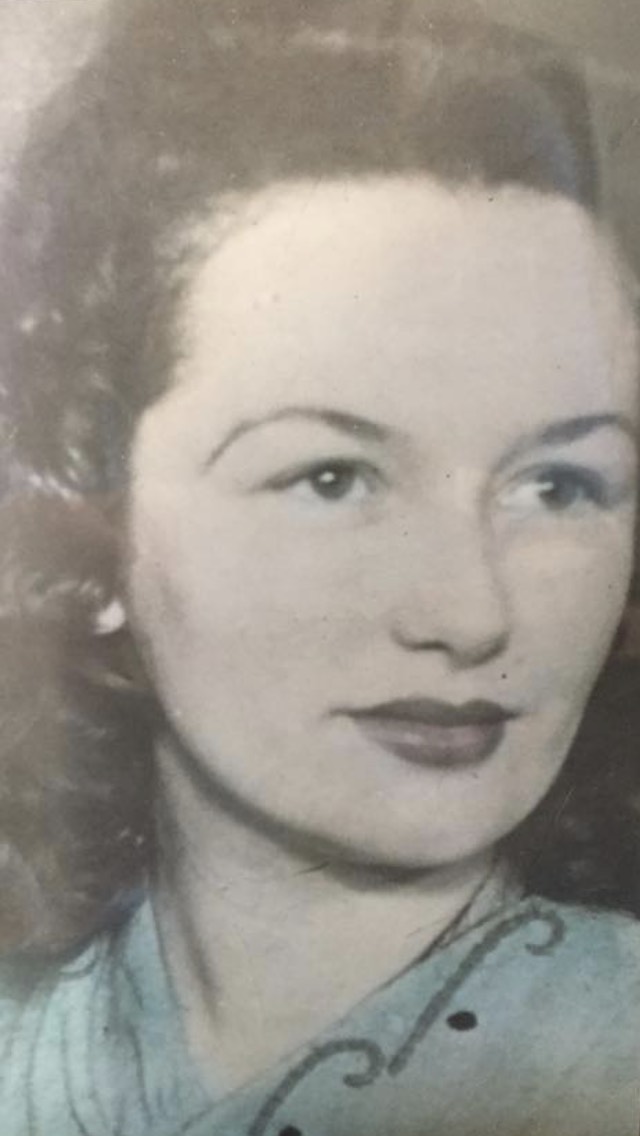
My beautiful and much loved mother died unexpectedly of a heart attack on November 24, 1981. I can still recall the devastation in my father’s voice as he made the announcement, referring to his wife of thirty eight years in the past tense for the first time: “Your mother loved you all very much.” he said.
I am the second youngest of my parent’s eleven children. Only fifteen at the time of her death, I had just entered that precarious stage of middle adolescence, where striving for independence conflicts with a very real need for the comfort and security of your mother. Simply put, my adolescent egocentric take on the world had shattered.
Two nights later, our family gathered for a Thanksgiving meal around our kitchen table. The silence was deafening, and the sense of sadness was so great, it was palpable. I did not realize that night, but dinner would serve as the harshest reminder of our horrific loss for many months to come.
My mother was a child of the Great Depression in Australia, and so in surviving hunger and poverty, she found great joy in preparing and presenting wonderful meals for her large family. Those meals were terribly missed, as was the happiness they had been served up with.
I returned to school six days after my mother’s death. My first day was tough from the start, given that my anxiety ridden mind could not recall my locker combination. Looking down the crowded hallway of bustling students, I became dizzy and sick to my stomach, and felt an overwhelming sense of impending danger. This, I came to understand much later was a panic attack, but at the time I thought I was losing my mind.
Between my fragile mental state and an instinctive dislike for the everyday drama that is high school in America, school proved to be more than I could handle in those early months. Fortunately, my father had the wisdom and compassion to prioritize my mental health over school attendance. I remember when a school official called late one afternoon to inquire about my chronic absenteeism, and he shamed her for questioning my need for space to grieve.
My father understood that facilitating my grief, rather than thwarting the process, was in my best interest. So if I lost an entire night of sleep due to insomnia, or even if I was simply struggling emotionally, it was understood that I had his permission to skip school.
Sometimes I would make myself tea and toast, curl up under a blanket on the sofa and numb my pain by way of daytime soap operas. Mostly though, I would take a duvet day and sleep soundly until well into the afternoon. One thing is for sure – these days were absolutely essential to my sanity.
There were particularly dark days, where I would have to skip school because my grief left me shaking and unable to function. Mourning the loss of my mother took a significant toll on my physical well being, and during that time my body demanded sleep.
When the long winter gave way to a gorgeous spring, more than a couple of my skipped school days led to long weekends of travel to see relatives, or spending the day outside for a day of horse racing with my father. These days provided healthy distraction from the relentless grief, and spending time outside provided much needed relaxation.
On a beautiful day in May, I skipped school to spend the day in Annapolis with my father. After a lovely lunch of crab cakes, we drove past the Naval Academy Hospital, and he pointed up to the hospital room where I was born. Like all the ones leading up to it, this skipped day was an integral part of my healing journey.
By the end of my sophomore year, I had come close to exceeding the allowed sick days permitted by the school administration. If memory serves me, I had taken eighteen days off in total. Grieving the loss of a parent as a teen was nothing short of brutal. Time away from school allowed me to process my grief and move on to a place of healing.

